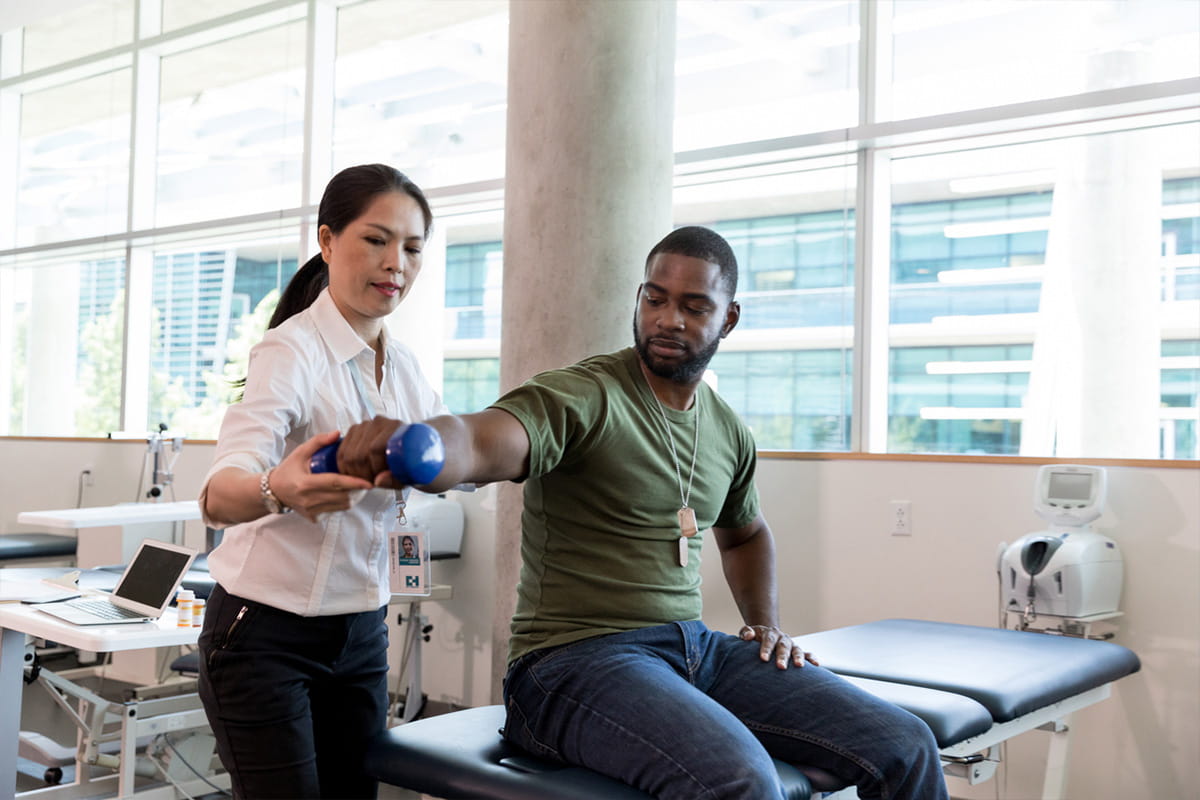Understanding the Function of Physiotherapists in Sports Medication
Comprehending the duty of physical specialists in sports medicine is important for professional athletes and healthcare experts alike. Physical specialists play an important role in examining athletes' problems and injuries, developing tailored therapy plans, and applying rehabilitation strategies. Working together with health care experts and trainers, physical therapists supply comprehensive care to athletes, guaranteeing their overall health and ideal efficiency.

Reviewing Professional athlete's Injuries and Issues
1. Physical specialists in sports medication play a vital function in reviewing athletes' problems and injuries. The capability to properly analyze an athlete's injury is important in identifying the ideal program of treatment and rehab. Via a detailed evaluation procedure, physiotherapists have the ability to identify the specific nature and extent of an injury, in addition to any kind of hidden variables that may have added to its incident.
During the assessment, physiotherapists collect essential details such as the professional athlete's case history, previous injuries, and existing signs. They additionally execute a complete health examination, examining elements such as range of movement, adaptability, stamina, and stability (Roanoke physical therapy). Special analysis tests and imaging may likewise be made use of to additional assess the injury or problem
By performing this comprehensive analysis, physical therapists have the ability to precisely identify the injury and develop an individualized treatment plan. This may include therapeutic workouts, hand-operated therapy strategies, and techniques such as warmth or chilly therapy. In addition, physical therapists offer education and learning and guidance on appropriate techniques for stopping future injuries, as well as approaches for optimizing performance and lessening the risk of re-injury.
Creating Tailored Therapy Plans
Physiotherapists in sporting activities medication create individualized therapy strategies based on their comprehensive evaluation of a professional athlete's conditions and injuries. This process involves a thorough understanding of the professional athlete's medical background, physical evaluation, and diagnostic examinations. By collecting this info, the physiotherapist can recognize the underlying reasons of the injury or condition and establish one of the most appropriate course of treatment.
The personalized therapy strategy intends to attend to the particular needs of the professional athlete and promote optimal recovery. It may consist of a combination of healing workouts, manual therapy techniques, modalities such as warm or cool treatment, and education on injury prevention. The physical therapist will certainly additionally consider the athlete's objectives, sport-specific needs, and timeline for go back to play when developing the therapy strategy.
Additionally, the therapy plan may evolve in time as the professional athlete advances in their recovery. Routine re-evaluations allow the physical specialist to assess the performance of the interventions and make any kind of needed alterations. The supreme goal is to help with the professional athlete's secure go back to their sporting activity while minimizing the threat of re-injury.
Applying Recovery Methods
The implementation of rehab strategies plays a crucial role in the therapy procedure for athletes in sports medicine. These strategies are made to assist professional athletes recover from injuries, enhance their performance, and stop further injury. Physical therapists, as specialists in activity and feature, are accountable for carrying out these techniques and assisting athletes via their rehab trip.
One of the crucial elements of executing recovery strategies is the evaluation of the athlete's condition. Physical specialists assess the professional athlete's injury or problem, thinking about elements such as the extent of the injury, the athlete's objectives, and their current level of physical conditioning. Based on this assessment, the therapist establishes a personalized therapy strategy that includes certain recovery methods.
Rehab strategies can consist of a selection of treatments such as healing exercises, hand-operated therapy, techniques (e.g., warm, cool, electrical excitement), and useful training. These strategies are tailored to deal with the athlete's specific needs and goals, aiming to restore optimal function, decrease discomfort, and improve efficiency.
Throughout the rehab process, physical specialists carefully keep an eye on the professional athlete's progress and make any type of necessary changes to the therapy strategy. They also give education and learning and assistance to the professional athlete on proper kind, injury prevention approaches, and self-care methods.
Enhancing Efficiency and Stopping Injuries
A vital aspect of the physiotherapist's role in sports medicine try these out is improving performance and stopping injuries with targeted treatments. Physical therapists play a vital role in optimizing professional athletes' efficiency and lowering the danger of injuries by using various methods and methods.
To improve performance, physical therapists function very closely with professional athletes to create customized workout programs that concentrate on improving toughness, endurance, flexibility, and equilibrium. Roanoke physical therapy. These programs are developed to attend to certain areas of weakness or limitation, enabling athletes to reach their complete possibility. Furthermore, physical specialists may employ methods such as manual therapy, consisting of joint mobilization and soft tissue mobilization, to enhance athletes' motion patterns and improve overall efficiency

Teaming Up With Health Care Professionals and Coaches
Collaboration with health care professionals and instructors is necessary for physical specialists in optimizing athlete performance and avoiding injuries in the field of sports medicine. physical therapist Roanoke. Physiotherapists play an essential function in the multidisciplinary team that sustains athletes, and reliable cooperation with various other experts is important for supplying comprehensive treatment
When working with medical care specialists, physical therapists collaborate carefully with medical professionals, orthopedic doctors, and sports medicine experts. This partnership allows for far better treatment, evaluation, and medical diagnosis planning for athletes. By sharing their knowledge and knowledge, physical specialists can add important insights and point of views to the team, making certain the very best possible results for athletes.
In addition, collaboration with trainers is vital for physiotherapists to make and execute reliable training and conditioning programs. Trainers give important info about the specific needs and objectives of the sport, as well as the professional athlete's training routine and efficiency expectations. By interacting, physiotherapists and trains can establish customized programs that address the athlete's specific requirements and boost their efficiency while reducing the risk of injury.
In addition, collaboration with healthcare professionals and trainers expands beyond the therapy and training phase. Physical specialists often work carefully with these specialists check out here in developing injury avoidance techniques and methods. By sharing their know-how and knowledge, they can contribute to the growth of evidence-based techniques that aim to decrease the event of injuries and maximize athlete efficiency.
Conclusion
In final thought, physiotherapists play an essential duty in sporting activities medicine by assessing professional athletes' injuries and problems, establishing customized treatment strategies, implementing rehab methods, boosting performance, and protecting against injuries. They likewise team up with medical care professionals and instructors to ensure detailed look after professional athletes. Their proficiency and understanding contribute considerably to the total wellness and well-being of athletes in the field of sports medicine.
Physical specialists play a crucial duty in reviewing athletes' conditions and injuries, creating customized treatment plans, and executing recovery techniques. Physical therapists review the professional athlete's injury or problem, taking into account variables such as the severity of the injury, the professional athlete's goals, and their present degree of physical fitness.In terms of injury avoidance, physical therapists use their knowledge right here of biomechanics and motion analysis to determine prospective threat aspects that may incline athletes to injuries. Physical therapists inform athletes on appropriate workout and cool-down methods, suitable shoes, and injury prevention techniques, encouraging them to take an active role in avoiding injuries.
In final thought, physical therapists play an essential role in sports medicine by evaluating athletes' conditions and injuries, developing individualized treatment strategies, implementing rehab techniques, boosting performance, and protecting against injuries.